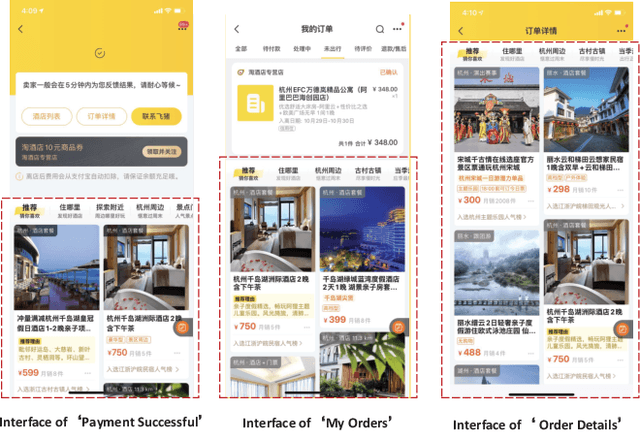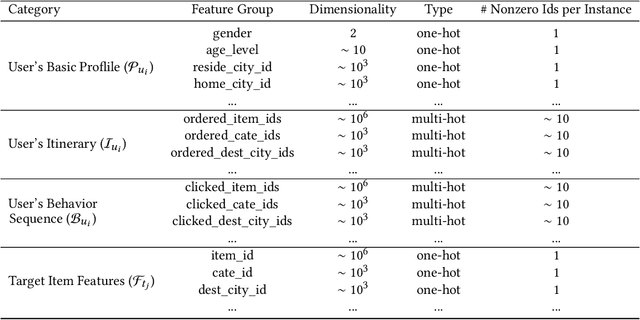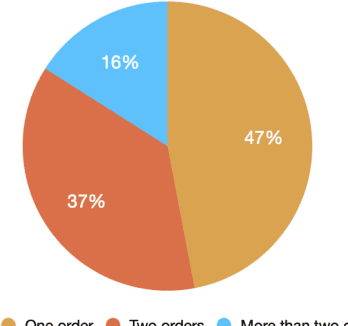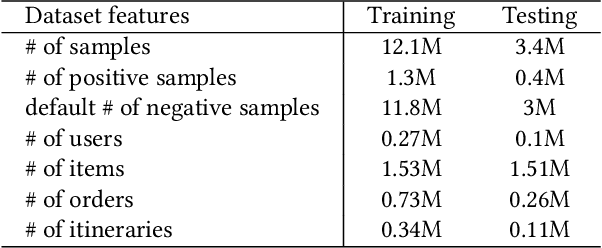Detao Lv
CRAFT: Time Series Forecasting with Cross-Future Behavior Awareness
May 20, 2025Abstract:The past decades witness the significant advancements in time series forecasting (TSF) across various real-world domains, including e-commerce and disease spread prediction. However, TSF is usually constrained by the uncertainty dilemma of predicting future data with limited past observations. To settle this question, we explore the use of Cross-Future Behavior (CFB) in TSF, which occurs before the current time but takes effect in the future. We leverage CFB features and propose the CRoss-Future Behavior Awareness based Time Series Forecasting method (CRAFT). The core idea of CRAFT is to utilize the trend of cross-future behavior to mine the trend of time series data to be predicted. Specifically, to settle the sparse and partial flaws of cross-future behavior, CRAFT employs the Koopman Predictor Module to extract the key trend and the Internal Trend Mining Module to supplement the unknown area of the cross-future behavior matrix. Then, we introduce the External Trend Guide Module with a hierarchical structure to acquire more representative trends from higher levels. Finally, we apply the demand-constrained loss to calibrate the distribution deviation of prediction results. We conduct experiments on real-world dataset. Experiments on both offline large-scale dataset and online A/B test demonstrate the effectiveness of CRAFT. Our dataset and code is available at https://github.com/CRAFTinTSF/CRAFT.
Itinerary-aware Personalized Deep Matching at Fliggy
Aug 05, 2021



Abstract:Matching items for a user from a travel item pool of large cardinality have been the most important technology for increasing the business at Fliggy, one of the most popular online travel platforms (OTPs) in China. There are three major challenges facing OTPs: sparsity, diversity, and implicitness. In this paper, we present a novel Fliggy ITinerary-aware deep matching NETwork (FitNET) to address these three challenges. FitNET is designed based on the popular deep matching network, which has been successfully employed in many industrial recommendation systems, due to its effectiveness. The concept itinerary is firstly proposed under the context of recommendation systems for OTPs, which is defined as the list of unconsumed orders of a user. All orders in a user itinerary are learned as a whole, based on which the implicit travel intention of each user can be more accurately inferred. To alleviate the sparsity problem, users' profiles are incorporated into FitNET. Meanwhile, a series of itinerary-aware attention mechanisms that capture the vital interactions between user's itinerary and other input categories are carefully designed. These mechanisms are very helpful in inferring a user's travel intention or preference, and handling the diversity in a user's need. Further, two training objectives, i.e., prediction accuracy of user's travel intention and prediction accuracy of user's click behavior, are utilized by FitNET, so that these two objectives can be optimized simultaneously. An offline experiment on Fliggy production dataset with over 0.27 million users and 1.55 million travel items, and an online A/B test both show that FitNET effectively learns users' travel intentions, preferences, and diverse needs, based on their itineraries and gains superior performance compared with state-of-the-art methods. FitNET now has been successfully deployed at Fliggy, serving major online traffic.
 Add to Chrome
Add to Chrome Add to Firefox
Add to Firefox Add to Edge
Add to Edge